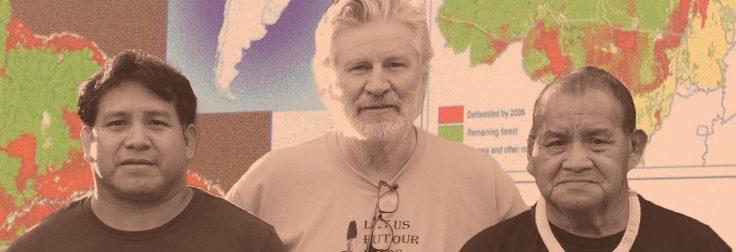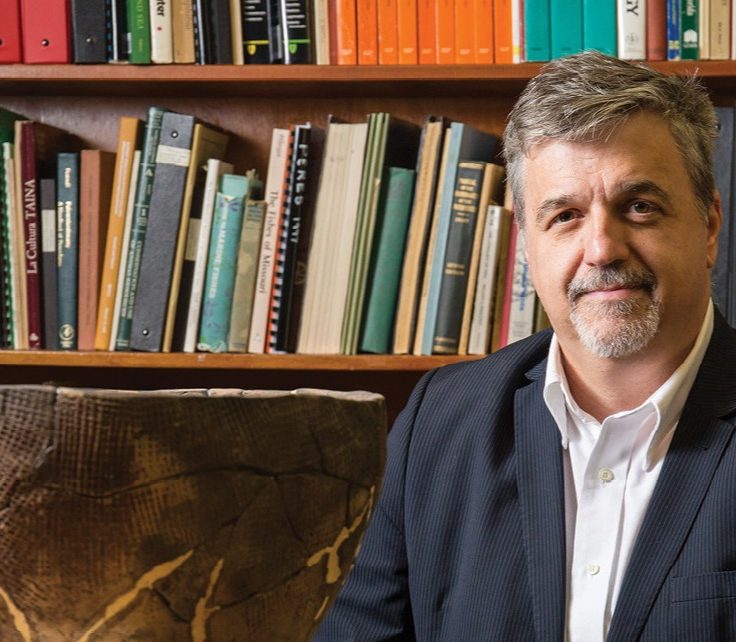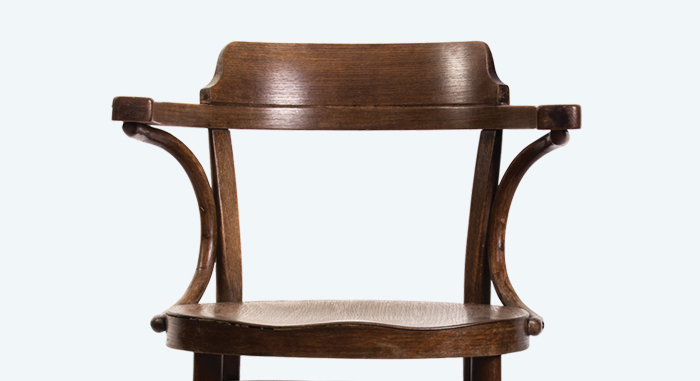Navigating the Pandemic
The Class of 2023 overcame unique obstacles with support from faculty and advisors
Alexandra Taylor arrived on campus at the University of Florida in August 2019, a nervous freshman from Central Florida who had retreated into academics as a high school student with few close friends other than her younger siblings.
She knew she was right where she belonged, having set her sights on the Gainesville campus in seventh grade. “I have always been a little Gator at heart, but I am the first in my family to go to UF,” said Taylor, whose birthday parties as a child were decorated in orange and blue.
Still, that first semester felt a bit overwhelming. It was almost with a sense of relief when, after returning from spring break in early 2020, she and the rest of the student body were sent home to study remotely as the COVID-19 pandemic forced safety precautions throughout the United States.
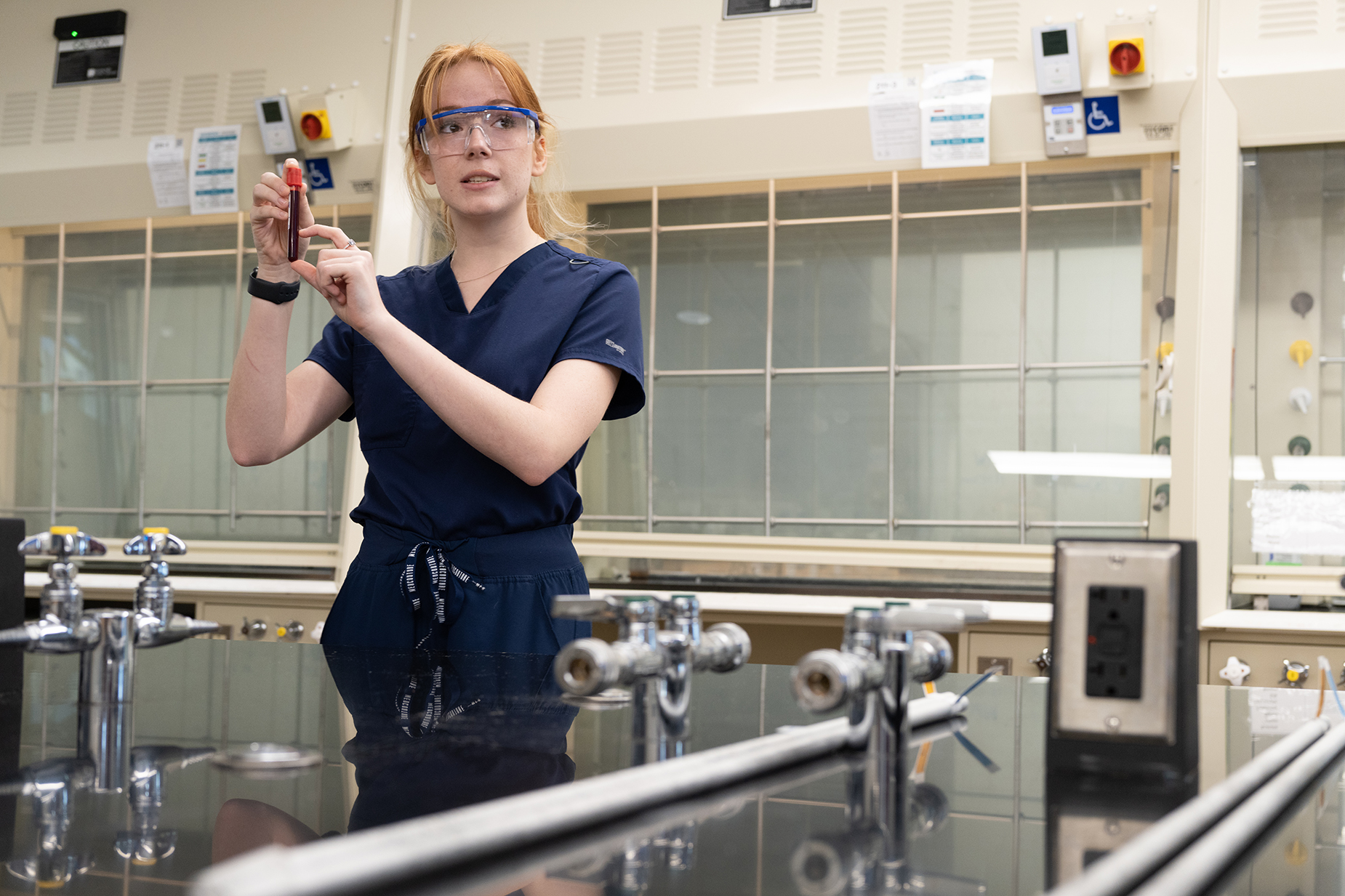
Taylor graduated this May along with a cohort of students whose experiences at UF were shaped by a pandemic that began their freshman year. They overcame challenges but also had unique opportunities. Early research found an “alarming” proportion of university students who showed signs of depression, anxiety and even suicidal thoughts during the COVID-19 pandemic but stressed that more study is needed.
Academic advisors in the College of Liberal Arts and Sciences said they saw the stress on students dealing with academic challenges on top of disruptions in their family lives. Some adapted quickly to online learning, while others needed extra help with coping strategies.
Faculty members in the college said they also have had to find coping strategies to deal with teaching students online, a trend that didn’t end with the return primarily to classroom instruction.
Taylor attributes much of her success as a student to that period of studying at home. “Meetings and classes over Zoom really helped me come out of my shell,” Taylor said. “Because it was online, I was able to put on a brave face. Otherwise, I was just too shy and scared.”
To stay connected, Taylor joined organizations. Taylor became the undergraduate representative on the board of directors for Phi Delta Epsilon Medical Fraternity. The international organization has opened doors for diverse students to enter the medical profession for over a century. Taylor graduated in May with a Bachelor of Science in Biochemistry and a French and Francophone Studies minor.
The COVID-19 pandemic also prompted Taylor to jump into clinical research. She has been researching therapeutic interventions for patients hospitalized with COVID-19 alongside infectious disease expert Nicole Iovine in UF’s College of Medicine.
“I wouldn’t have had that opportunity without the pandemic,” Taylor said.
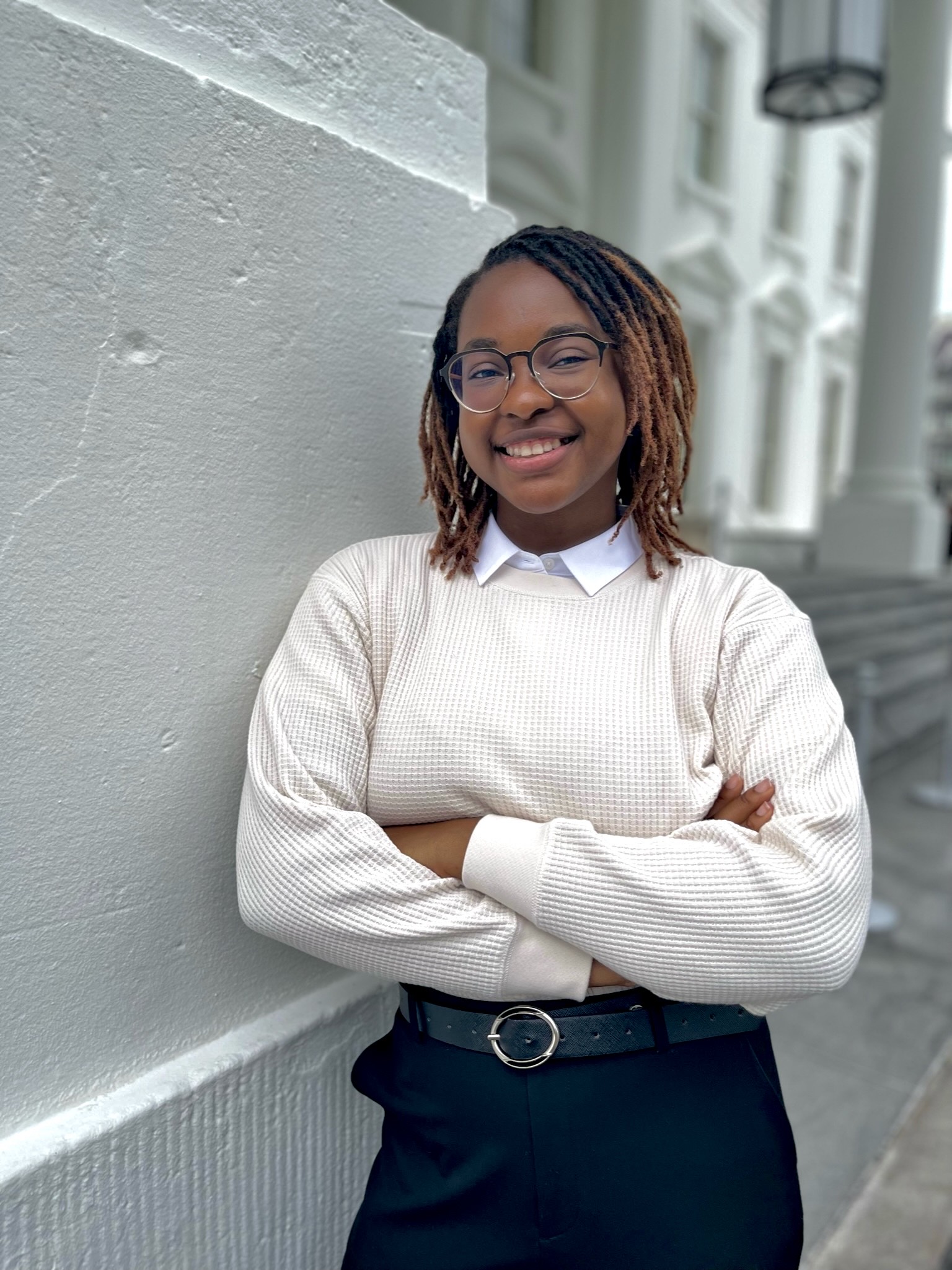
Rose Jacques graduated in December 2022 but found her academic path through the pandemic more of a struggle. Her family suffered financial hardships after her mother was laid off from her job. “I stayed home a good bit through the pandemic to help out,” Jacques said.
“I think my experience at UF was very different from what I imagined, largely because of my family situation. My grades were the same, but I had to put in more effort just not to fall behind,” Jacques said. “I feel like I missed out on a lot of things.”
Jacques credits the counseling she received through the College of Liberal Arts and Sciences Academic Advising Center. There, she got involved in the Beyond120 experiential learning program, where she joined an excursion to Washington, D.C. in 2022. That helped her land an internship with the U.S. Department of Homeland Security.
Despite finishing her undergraduate work in just three and a half years, Jacques successfully balanced coursework as a double major in international and Japanese studies. She now advises international students at Florida International University and plans to seek a role eventually with the U.S. Foreign Service.
“Everything is getting back on track,” she said
While the pandemic disrupted students’ lives, and their experiences as Gator undergraduates were shaped by more remote learning, graduation rates in the College of Liberal Arts and Sciences appear unaffected. The four-year graduation rate for those entering the college has run between 72%-75% in recent years. According to CLAS Academic Advising Center data, those who matriculated in 2019, just before COVID-19 forced the campus-wide shutdown, are projected to fall within that range.
A survey of students at Texas A&M University in the spring of 2020, as many campuses were locked down, found 71% said their stress level had increased, with 18% reporting suicidal thoughts. The study, which appeared in the Journal of Medical Internet Research, found that just 43% of students surveyed could cope adequately with the stress related to the pandemic.
The study reported that the most significant contributor was academic stress, with the majority stemming from increased difficulty due to the precipitous transition and maintenance of online classes.
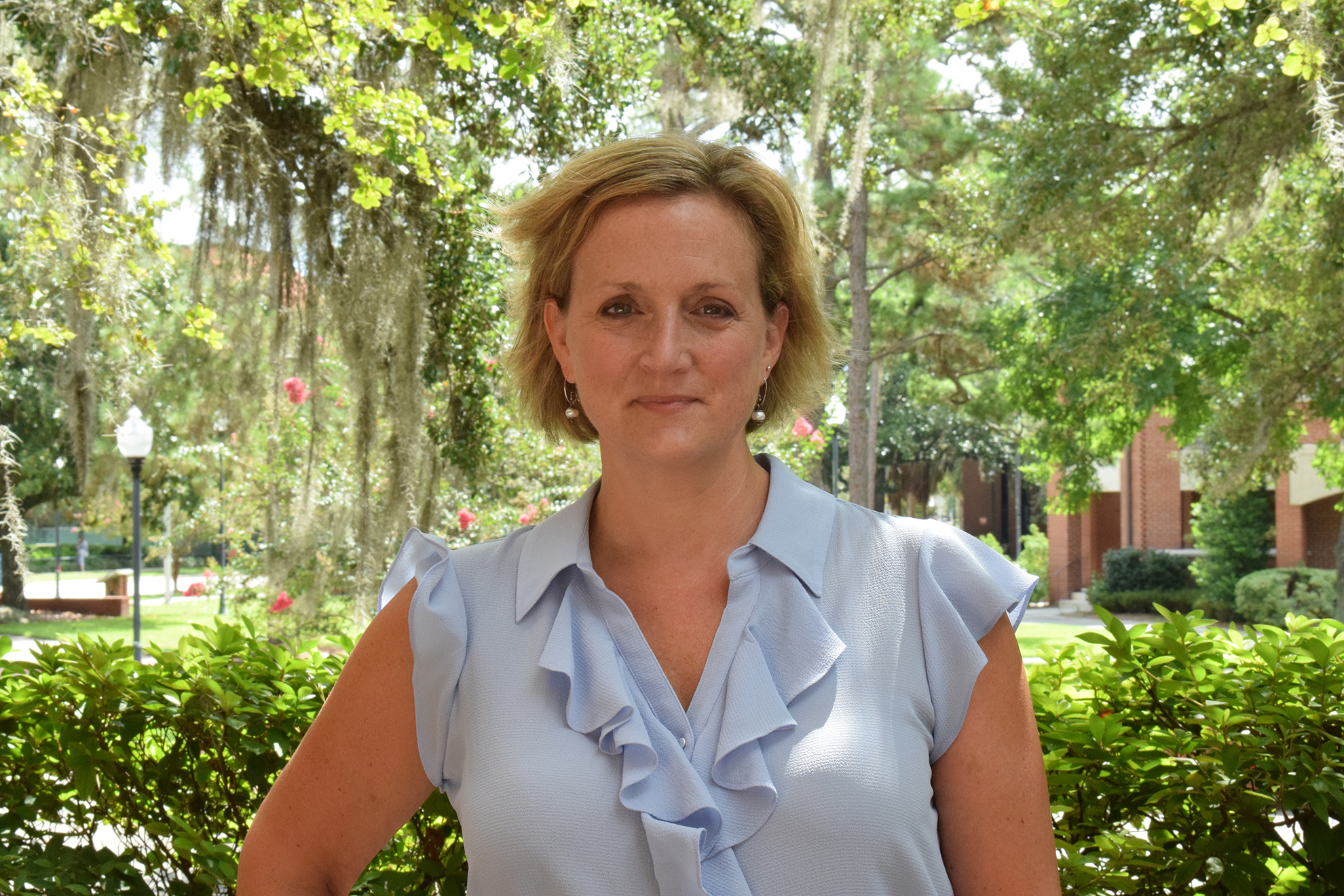
While many people expect college advisors will be a resource for navigating academic pathways, “really it is so much more,” said Associate Dean for Student Affairs Gillian Lord, who also serves as director of the College of Liberal Arts and Sciences Academic Advising Center, as well as professor of Hispanic linguistics.
“Academic advisors are often the people students reach out to regarding all sorts of struggles,” Lord said. “While the need has certainly been great during the pandemic, I’m not sure the role has really changed,” she said.
What has changed is the demand for student mental health services, which Lord said has “skyrocketed.” Although she attributes only a portion of the rising need to the pandemic. She said other factors — including social media — also play a part.
In 2022, the Academic Advising Center provided 26,181 appointments to students in the college — about the same as since the pandemic began. A comparison with pre-COVID levels isn’t available because the data collection process has changed.
For faculty, some of the changes forced by the pandemic have become endemic, just like the virus itself. That has positive as well as negative consequences, some faculty members said.
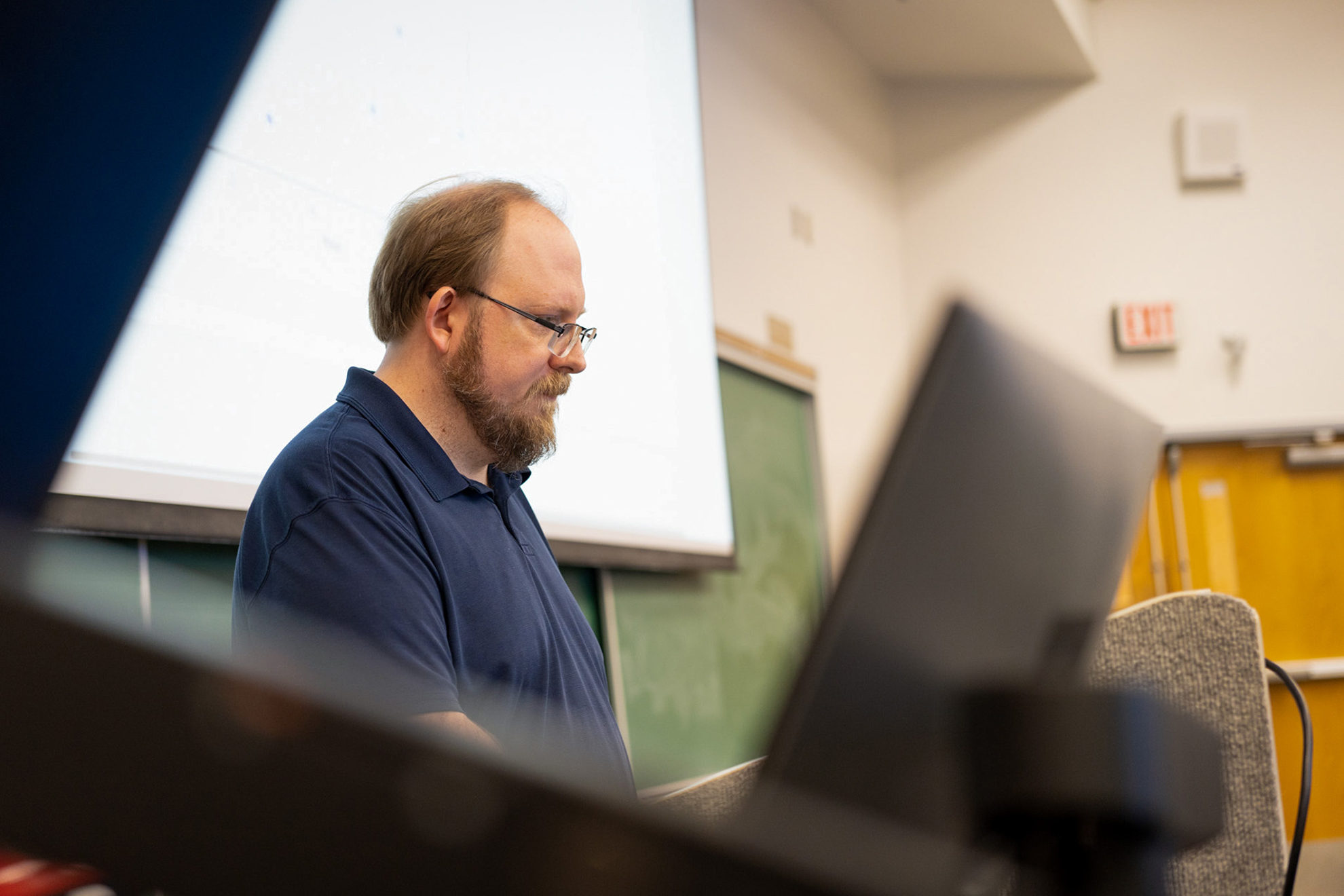
“When we went completely online, it was difficult to get students to show their work,” said Jason Harrington, associate instructional professor in the Department of Mathematics. Harrington describes himself as “old school” in that he prefers to teach before a live classroom audience.
Some students struggled to manage new skills like scanning their worksheets, converting them to PDF files and uploading them all to Canvas, UF’s online academic portal. As a result, he found himself engaging more with academically challenged students than previously, when it was those whose hands were up because they had ready answers.
While some of his colleagues continue to offer classes online or on a hybrid model, Harrington has returned to in-person instruction. “Students are always asking me about the modality of the course — online or in person. That never happened before,” he said.
“I didn’t feel connected to the students. I didn’t feel the engagement. When I tell terrible math jokes… It turns out that 68% of all statistics are made up on the spot… I like to hear them groan,” Harrington said with a chuckle.
Even before artificial intelligence tools like ChatGPT began to find their way into many academic disciplines, math instructors found that technologies such as WolframAlpha not only could spit out the correct answer to a problem, but they could also detail the steps that lead to it, “showing the work” their professors prize.
“We’re going to have to figure out how to do online testing and adapt to these new technologies,” Harrington said, that might not have resulted from the COVID pandemic, but will be with us going forward.
